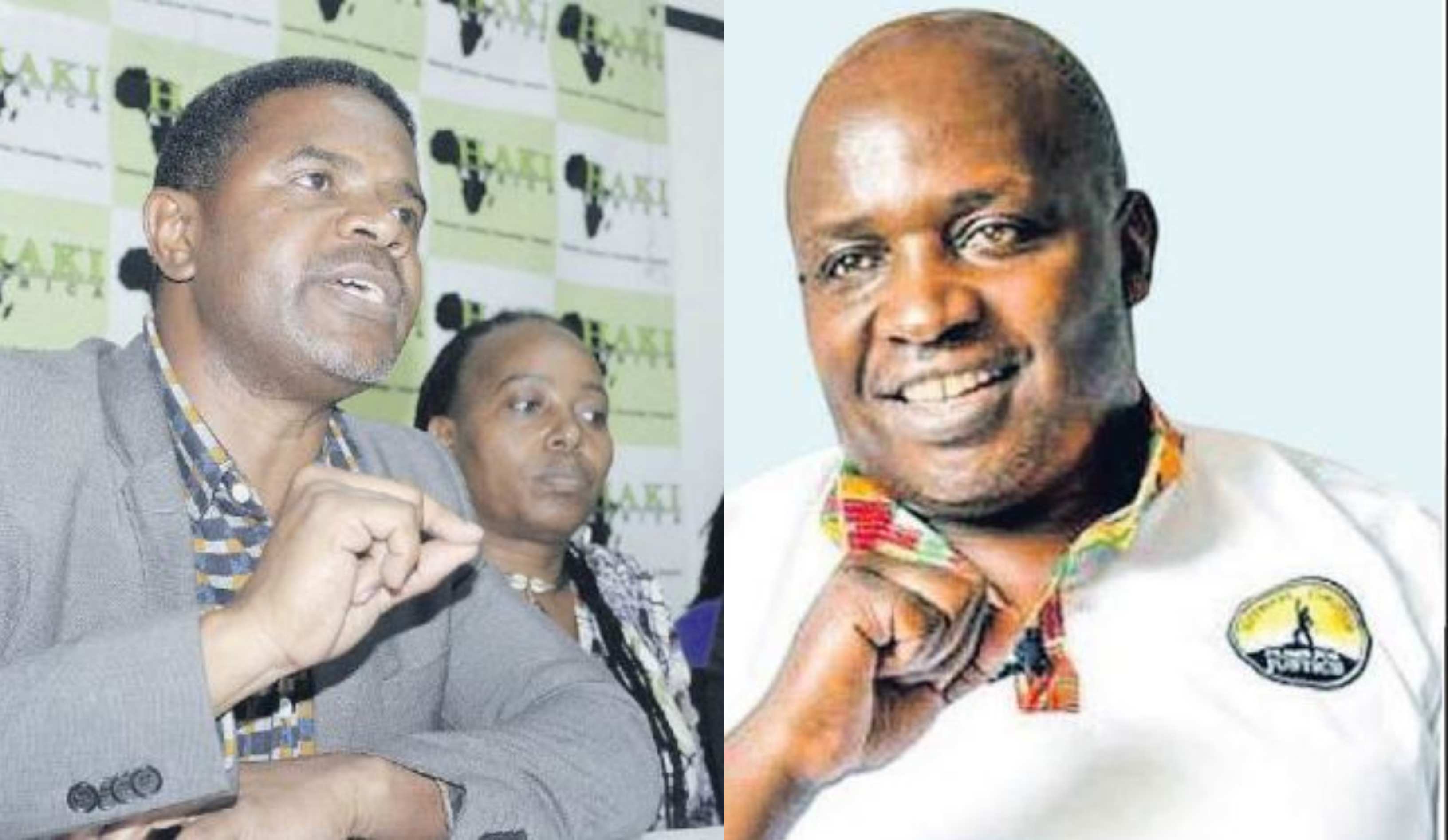 A collage of human rights activists Hussein Khalid(CEO and Director Vocal Africa) and Kamau Ngugi( CEO Defenders Coalition)./FILE
A collage of human rights activists Hussein Khalid(CEO and Director Vocal Africa) and Kamau Ngugi( CEO Defenders Coalition)./FILE
In the sweaty but thankless work of human rights activism, the media is an indispensable partner — and the Star has been a stalwart in providing endless space and coverage for advancing the human rights agenda, senior civil society executives have said.
Kamau Ngugi, executive director of Defenders Coalition, and Hussein Khalid, CEO of Director of Vocal Africa, say that for the past 18 years, the paper has been consistent in offering a platform for various voices – including human rights leaders – to advance issues from diverse perspectives, often using angles not openly spoken about.
Ngugi, who also chairs the Network of Human Rights Defenders from the Horn of Africa region, said the past 18 years have been a worthwhile run for the Star. He added that this period of maturity should propel the paper into the future with greater depth, boldness and expanded space for fearless voices advocating for the intersectionality of human rights.
“Democracy as envisioned – where the global community deeply values people’s political engagement, including participation in elections, and where those elected are accountable to them – thrives on vibrant checks and balances in the management of public affairs and the protection of citizens’ human rights and fundamental freedoms,” he said.
“The exercise of these requires vibrant media that keep reminding and calling out when such aspirations are not being realised. The media plays a critical role to remind citizens and those to whom they have donated the power to manage them that a thriving civic space is critical for all. The media is extremely pivotal in building democracy in Kenya.”
At a time of sharp polarisation and heavy-handed state handling of the media, especially ahead of the 2027 election, Ngugi said a bold and credible newspaper that bears true record of events and offers objective editorialisation cannot be gainsaid.
“Communication through various forms of media facilitates connection between people and ensures that information, debate, analysis and even uncomfortable truths are disseminated—all crucial to addressing threats to our shared values. Print media has traditionally provided unadulterated records of people’s interactions and thoughts,” the human rights activist said.
Ngugi is also a regular contributor of incisive opinion pieces published in the Star’s weekend Siasa pullout.
On his part, Khalid – who has also written op-eds for the publication – said all media rights campaigners must safeguard the place of print outlets, which has been consistent in allowing diverse thoughts to thrive on its platforms.
He emphasised that a robust and free media is essential to building democracy in Kenya. Without access to information, he noted, citizens remain powerless.
“The only way citizens can meaningfully engage is if information is available—and that is only possible through media,” he said.
Khalid has been particularly in the spotlight during the Gen Z-led agitations, responding on the frontlines to incidents of alleged police brutality and extrajudicial killings.
He has helped victims and families access critical processes like postmortems and documentation in their pursuit of justice.
To safeguard the independence of the press, especially at a time when the state is averse to sharp criticism, Khalid called for legal reforms to protect press freedom, support for media self-regulation and state backing of grassroots media houses. These, he said, are essential to breathe life into Kenyan democracy.
He urged media houses to adopt the paper’s bold strategy of working closely with civil society organisations to amplify grassroots voices in mainstream conversations.
To balance profit making with public interest, Khalid advised media owners to diversify funding sources to ensure sustainability. They should also improve the remuneration of journalists to encourage objective reporting.
“Reward good journalism [and] introduce a human rights–based approach to journalism,” he said.
INSTANT ANALYSIS:
The Star is being lauded not just for editorial bravery but also for structurally enabling civic participation in Kenya’s democracy. As the 2027 election cycle nears, its consistent commitment to human rights journalism will be under even closer scrutiny—and more vital than ever.











